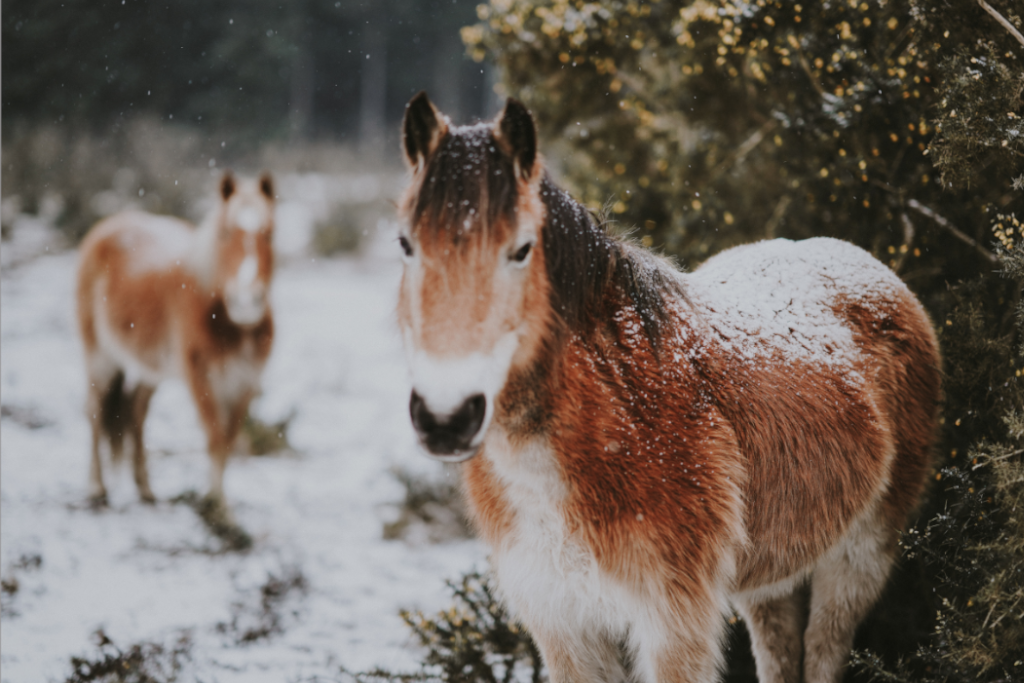
Generally, as long as a horse stays dry, isn’t exposed to drafts, and hasn’t been clipped, it can handle cold temperatures very well. People often transfer their own sense of temperature onto horses, which is not always accurate.
Of course, there are differences among breeds and types regarding coat density, coat length, and comfort in different temperatures. Rugging may be necessary if the horse can’t adequately protect itself from the weather, such as rain, wind, or snow. Over-rugging when temperatures are too warm, however, can be harmful. The horse’s natural thermoregulation can be disrupted under the rug, causing overheating and straining its circulatory system. If the horse starts to sweat under the rug, it may even become cold later, as the dampness prevents moisture from wicking away. If it then gets colder and windier outside, the horse cannot lift its wet, matted coat under the rug, and the moisture cools it down further.
For an older, thin, immunocompromised, or clipped horse, or a horse with an extremely thin winter coat, rugging can be a good idea when weather conditions require it. If a horse is wet and sweaty and then exposed to drafts, it can catch a chill, just as we can. For this reason, horses that sweat heavily after training may benefit from a breathable, wicking sweat rug. If you plan to work your horse consistently through the winter, clipping might be wise, as it prevents the horse from taking hours to dry after exercise. However, clipping removes essential thermoregulation, meaning that clipped horses usually need to be rugged, except in exceptionally warm conditions.
But should horses with respiratory issues be rugged sooner and more warmly?
If your horse has lung problems due to an infection, it generally needs to be kept slightly warmer than a healthy horse in cold, wet weather. Horses with equine asthma (hypersensitivity to dust) usually do not require any extra warmth from rugging. It’s more essential that they spend lots of time outdoors; being exposed to the elements more, they may need a rug sooner than a stabled horse. Always ask yourself if rugging is truly necessary. Many horses dislike wearing rugs—some rugs rub the chest, pinch at the withers, interfere with grooming, and feel unnatural to them, not to mention the additional injury risk. Have you ever stood in the paddock in the cold wearing a winter coat and hat and noticed how horses still happily roll in the wet sand, even without a rug? As long as they’re doing that, they likely aren’t cold!
Conclusion
Unfortunately, as with so many things, there’s no one-size-fits-all answer. Horses and their living conditions vary too much for a general recommendation. Essentially, you need to observe your horse and assess when it might need a rug. Clear signs that a horse is too cold include shivering, tucking in the tail, raising the back, and fluffing up the coat. What bothers horses isn’t so much the cold itself but the combination of wet, cold, and wind that can challenge their immune systems. Horses with thick winter coats can even handle double-digit subzero temperatures without freezing. Ultimately, it’s a decision that should be made individually for each horse, without projecting our own temperature sensitivities onto them.

